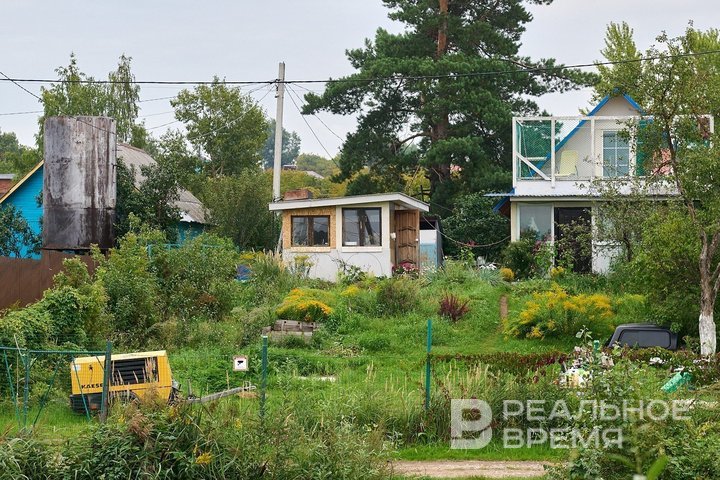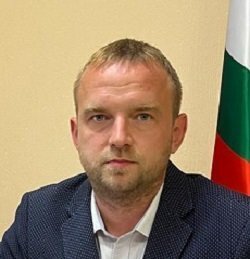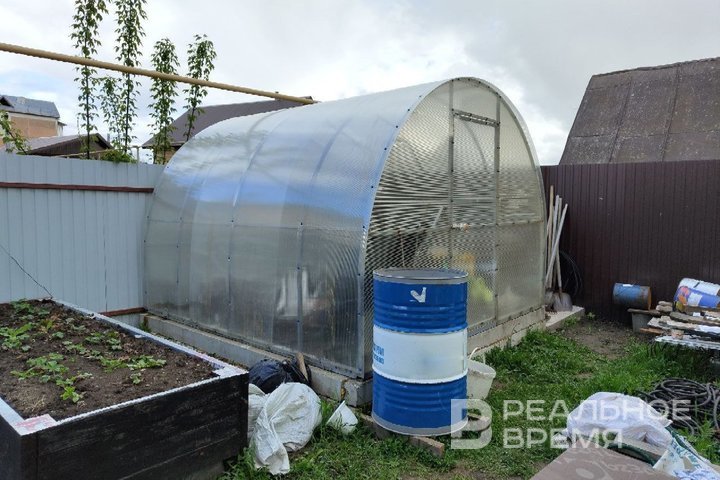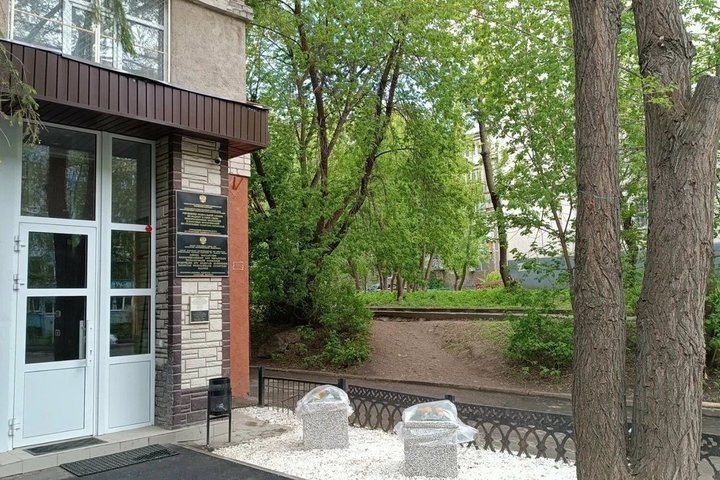Gardeners who ‘disagree’ to the personal data processing risk ruining their allotment societies
Novelties in the law and the inertia of citizens have put gardening associations at risk of million-worth fines

The May tightening of penalties for violating the established procedure for processing personal data has resulted in serious financial threats for gardening associations. Fines for processing personal data without the written consent of their owner can ruin the treasury of any allotment society. At the same time, the chairmen of Tatarstan gardening associations are faced with the reluctance of their members to provide such consent. Realnoe Vremya examined the legislative impasse, possible paths and the search for solutions by the regional branch of the Russian Union of Gardeners.
“Revenge” of the chairman
On 30 May 2025, fines for failure to notify Russia’s communication watchdog about the start of personal data processing increased sharply — allotment societies can pay up to 300,000 rubles for this violation, and the chairman of the allotment society — up to 50,000.
“Of course, we filed such a notification with the watchdog, and now we are waiting and fearing inspections and even larger fines,” the chairman of one of the Kazan garden associations shared with Realnoe Vremya. “The allotment society’s board stores and processes the data of the owners of land plots — without this, we cannot issue them invoices for the payment of membership and target fees, nor issue the necessary certificates, nor monitor the payment of fees. All the owners themselves, voluntarily provided us with this data. But no more than a quarter of the total number of owners gave us consent to the processing of personal data. We persuade the rest to write such consent, but they refuse.
According to him, gardeners justify their refusal to sign the consent in different ways. Some refuse to give it on principle, because “it is unknown what you will do with our data.” Others demand “guarantees that this data will not fall into the hands of fraudsters.” And still others silently ignore requests. And no arguments or persuasions that every gardener has already provided their personal data a thousand times in a thousand places, from the post office to the clinic, have any effect on them, the head of the allotment society complained.

“I understand that my data has already been ‘exposed’ in many institutions,” says one of the “dissenters,” Tatyana Sh. “But I do not want to give consent. I think that if I give it, and then a leak occurs, I will not even be able to make a claim to the society’s management for this, they will say that I myself agreed to everything. It is better not to agree at all.”
At the same time, Tatyana, like most gardeners, understands perfectly well that the “leak” has already happened, and maybe more than once — scammers have already called her, called her by her first name and patronymic, and even correctly dictated her individual insurance account number when they tried to gain access to her personal account on the State Services under the guise of an appointment with a doctor for a “medical examination.”
One of the gardeners even said that he has long been deeply offended by the management of his partnership and therefore will not give consent — let them fine the chairman. This is the kind of “personal revenge” that, according to the Code of Administrative Offenses of the Russian Federation, can cost the head of the allotment society 100-300,000 rubles (for the first time), and the partnership itself — 300-700,000. If the violation is repeated, the official can be punished with a fine of up to 500,000, and the allotment society — up to 1.5 million rubles.
It is impossible to persuade, it is impossible to punish

According to the head of the republican Union of Gardeners, the problem is acute, because some organizations can work with anonymized personal data and thus are not responsible for their processing without the consent of the owners, but the allotment society cannot. Well, it is impossible to “impersonally” issue receipts for payment of fees, or control the receipt of payments, or collect debts from defaulters through the court. Slesarsky also noted that problems with obtaining consent arise mainly with “old” members of the allotment society. When buying a plot, new owners write an application for joining the society. Special forms have been developed for applications in garden associations, which “automatically” include consent to the processing of personal data. Some chairmen, trying to solve the problem, have now begun to collect applications from all owners of plots, including those who have long been accepted as members of the allotment society, in order to obtain their consent.
When asked whether it is possible to somehow “punish” intractable gardeners who threaten the entire partnership with large fines, Ilya Slesarsky replied that he does not know anything about possible measures to influence them yet. But the Union of Gardeners is aware of the scale of the problem and will look for ways to solve it:
“Of course, you can refuse to process the personal data of gardeners who have not given their consent, but in the end such an allotment society will only punish itself. These people will not pay fees, but will enjoy all the benefits of the allotment society. I think that in the near future, the watchdog’s specialists will tell us how to act, and I hope that a solution will be found from which neither gardeners nor the allotment society itself will suffer.”

Slesarsky also noted that the legislation requires not only consent to the processing of personal data, but also to ensure their safety. And here, too, problems may arise. For example, information related to personal data should be stored in a safe, in a separate room, ensuring that no one has access to it, and the room where the safe is located should be guarded and well protected from intruders: for example, bars should be installed on the windows, and an alarm system in the room itself. Most garden associations have not taken such measures before, therefore, the allotment society expects serious additional expenses.
No consent — no allotment society member?
“People provide the allotment society with their personal data because they understand that otherwise they will have problems, and they do not give consent to their processing, because they will not have problems from this,” says lawyer Rayat Zainullin. “Now only one possible measure comes to mind to combat such behaviour — the chairman can take the position: “Since you do not give consent, we will assume that we do not have your data.” And stop sending them bills for payment of fees, and since the fees are not paid, stop providing these allotment society members with various benefits — for example, “cut off” the water supply.
A refusal to provide consent to the processing of personal data, the expert says, may become a reason to raise the issue of excluding a gardener from the allotment society. Then this citizen will have to enter into an agreement with the allotment society, and it should also include his consent to the processing of personal data. He also recommends explaining to the neighbours of intractable gardeners that when a fine comes for the violation, all members of the allotment society will pay for such stubbornness — it will be deducted from the membership fees.
The lawyer added that it was precisely because of this casuistry with personal data that he himself was forced to stop providing legal services to individuals. His organization works with legal entities, and now he enters into contracts for services with “individuals” as an individual.

Realnoe Vremya contacted the communications watchdog with a request on how to be law-abiding chairmen of garden associations if allotment society members provide them with personal data necessary for the activities of the association, but do not give consent to their processing, and how they can avoid fines in the event that all possible measures in the form of persuasion and explanations have already been exhausted. We also asked for clarification on whether the law provides for any measures of influence on citizens who put the allotment society in such a situation, and whether the watchdog has developed any recommendations on this matter.
“If allotment society members do not give consent to the processing of personal data, the allotment society has the right to use other legal grounds provided for in Part 1 of Article 6 of the Federal Law On Personal Data, the department reported. “In particular, it is worth considering the possibility of processing data on the basis of the execution of an agreement with a society member, if this is necessary to fulfil the provisions of the charter or other allotment society documents, for example, to calculate fees or notify about meetings. It is important to analyze all purposes of data processing and select appropriate legal grounds for each of them.”